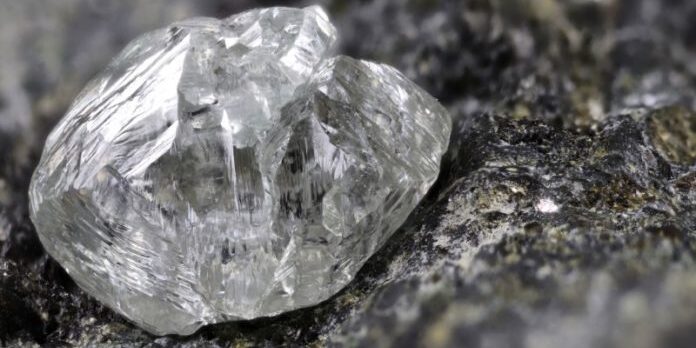President Mokgweetsi Masisi of Botswana has again taken aim at the longstanding partnership with diamond giant De Beers, launching a scathing attack and vowing not to settle for anything less than an improved agreement.
The current deal, set to expire next month, grants Botswana a 25% share of rough diamonds mined under the partnership, while De Beers retains the majority.
Negotiations for a pact renewal are underway, with Botswana pushing for a higher stake in the profits.
Debswana Diamond Company, jointly owned by Botswana and De Beers, is responsible for the extraction of these precious stones.
Botswana supplies 70% of De Beers’ rough diamonds, emphasizing the country’s significant role in the diamond industry.
President Masisi, who has been intensifying pressure on De Beers since February, made his strong stance clear during a speech in Mmadinare, northeast of Gaborone’s capital.
In the local vernacular, Setswana, he expressed that the current agreement was not intended to be permanent and hinted that negotiations could reach an impasse.
The President stated, “It is either we accept the situation as it is and continue getting leftovers, or we dig in and, no matter how tough it is, demand what is ours, even if we lose through litigation.” While De Beers refrained from commenting on the matter, the company had previously expressed confidence in reaching a favourable resolution, acknowledging the complexities involved.
With Botswana gearing up for its general election next year, President Masisi declared his readiness to risk political losses over this sensitive issue. He boldly asserted, “I am not scared. Yes, we are politicians and always lobby for votes, but if it means losing as a result of this issue, let it be.”
The negotiations began in 2018 and were slated to conclude in 2021. Due to the pandemic, the deadline was extended until June 30, 2023. President Masisi highlighted that the trade of rough diamonds mined in Botswana could generate up to $15 billion annually. The current deal with De Beers yields around $7 billion, or $8 billion.
Furthermore, he criticised the existing agreement for limiting Botswana to trading solely in rough diamonds. The country aspires to expand its involvement in the diamond value chain, encompassing mining, sorting, cutting, polishing, jewellery creation, and sales.
President Masisi asserted that participation in the value chain could result in nearly $100 billion in earnings, underscoring the need for a more favourable deal with De Beers.
Expressing his bewilderment, President Masisi raised concerns about the arbitration process, which refers to deadlock situations in negotiations with courts in England. He decried the notion that others profit from Botswana’s diamonds while leaving the country impoverished, stating, “The $7 billion that we get … yet we can get close to $100 million. No, no.”
President Masisi firmly believes that if Botswana secures a favourable agreement with De Beers, the country’s struggle with poverty could be swiftly eradicated. He asserted, “We have been shortchanged with our resources through these agreements, but now we can read, and our eyes are open.”
Hans Merket, a diamond expert based in Belgium, expressed concerns over the potential ramifications of Botswana’s threats to withdraw from the De Beers deal. While uncertainty looms within the diamond industry, Merket suggests that these statements may be part of negotiating tactics rather than an actual desire to sever ties. He believes that De Beers and Botswana rely on each other and that breaking the partnership would be detrimental.
Given Botswana’s prominent position as the largest diamond-producing country by value, protracted negotiations could disrupt the entire diamond value chain.
Merket emphasised that Botswana’s diamond production, accounting for over 90% of the country’s total production, plays a significant role in the global market.
Moreover, with diamond production from Russia facing challenges due to Western sanctions imposed after the conflict in Ukraine, any disruption in Botswana’s supply would have far-reaching consequences. Botswana ranks second only to Russia in terms of global diamond production, but buyers have been shying away from Russian stones following the 2022 invasion of Ukraine by Moscow.
![]()




